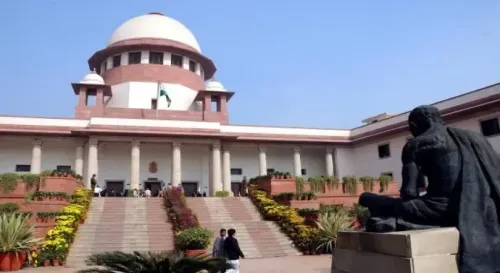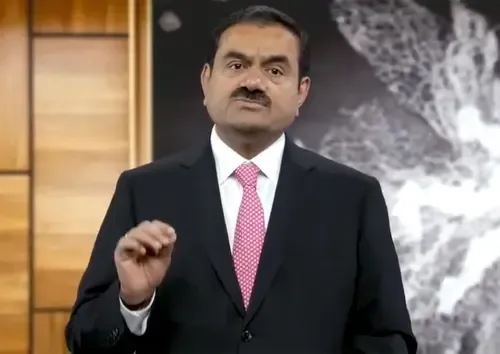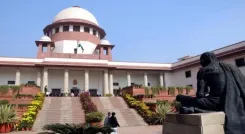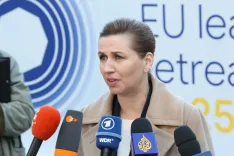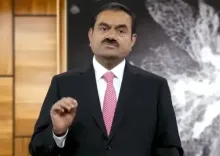Is Water and Blood of Our Citizens Destined to Flow Together? Amit Malviya Speaks Out

Synopsis
Key Takeaways
- India's decision to halt river flow highlights national security priorities.
- The muscular doctrine signifies a robust approach to dealing with terrorism.
- Former leaders support renegotiation of long-standing treaties.
- Political will is crucial for making tough decisions in India's interest.
- Engagement with Pakistan remains fraught with challenges.
New Delhi, May 5 (NationPress) The chief of the BJP Information Technology cell, Amit Malviya, expressed strong support for the Modi administration's ‘muscular doctrine’ in halting the release of the Chenab River from the Salal Dam to Pakistan in Jammu and Kashmir, stating, “water and the blood of our citizens cannot flow together”.
He shared images from Raesi showcasing the dam's closed gates and a parched Chenab riverbed, commending Prime Minister Modi for taking decisive strategic actions against Pakistan following the deadly Pahalgam terror attack on April 22 that resulted in 26 casualties.
“Making difficult decisions in India’s favor requires political determination, and Prime Minister Modi has proven this through his actions. This embodies the muscular Modi Doctrine, steadfast in its battle against terrorism,” he stated in a post on the social media platform X.
Malviya issued a stern warning to Pakistan: “Water and the blood of our citizens cannot flow together. Let that be clear.”
He also criticized Congress leader Ajay Rai from Uttar Pradesh for ridiculing the Indian Air Force (IAF) by displaying a toy aircraft labeled ‘Rafale’.
“Following Karnataka Chief Minister Siddaramaiah, Ajay Rai has become a favorite of the Pakistani media, echoing their sentiments and disparaging the Indian Armed Forces. The Congress party has no shortage of such foolishness, and it starts with the Gandhis,” he remarked.
Former Union Minister Farooq Abdullah had earlier expressed his support for the government’s choice to suspend the Indus Waters Treaty (IWT) and cease the flow of river waters to Pakistan after the Pahalgam attack.
“We’ve been advocating for years that this treaty needs to be re-negotiated,” Abdullah, who leads the National Conference party, told IANS.
“We are harnessing energy from that water, yet their representatives monitor it. The water is ours. We have a right to it,” he asserted, backing the Indian government's suspension of the IWT, a decades-old agreement on water-sharing with Pakistan.
This suspension of the IWT marks one of the significant measures India has taken after highlighting ‘Pakistan connections’ to the Pahalgam attack that led to 26 fatalities.

